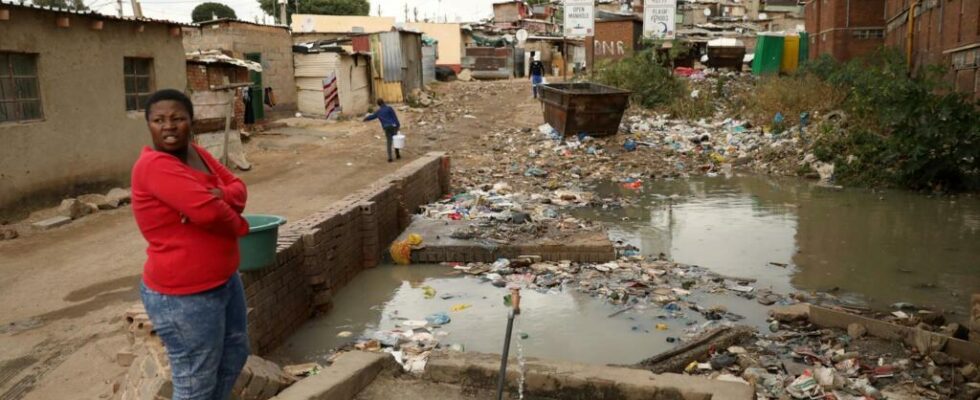In South Africa, the city of Johannesburg and its region regularly experience serious water cuts. Summer temperatures – as the southern summer approaches – and the increase in population in certain areas are increasing pressure on the system. But above all, the infrastructures have not been sufficiently modernized in recent years.
2 mins
With our correspondent in South Africa, Claire Bargelès
For several weeks, the taps in the Brixton district (Johannesburg) have regularly been dry or with very little pressure. So Vusi often travels to fill cans at this public tap: “ It’s not easy to raise children without having water. Especially these days it’s very hot. »
The situation is not unusual; Johannesburg is faced with very regular power cuts.water in recent years. For Ntsani, a student who lives in the neighborhood, it is difficult to understand that the city has come to this: “ Every day at the moment, we no longer have water from 7 a.m. until 9 a.m. in the evening. The municipality is not doing its job, even though we are in a big city and water is crucial. »
“ Infrastructure has been neglected »
However, the region’s reservoir is not dry. But, due to a lack of recurring investment and increasingly aging infrastructure, a lot of water is lost along the way according to Anja du Plessis, professor at the University ofSouth Africa (Unisa): “ The current water crisis in the Gauteng region is due to poor human management. Infrastructure has been neglected and around 47% of water is lost, for various reasons, before reaching the consumer. In the city of Johannesburg, it is estimated that 26% of losses are due to leaks or burst pipes. »
The municipality has triggered its level one restrictions in anticipation of the approaching southern summer.
Also readIn South Africa, the city of Johannesburg wants to fight against air pollution
